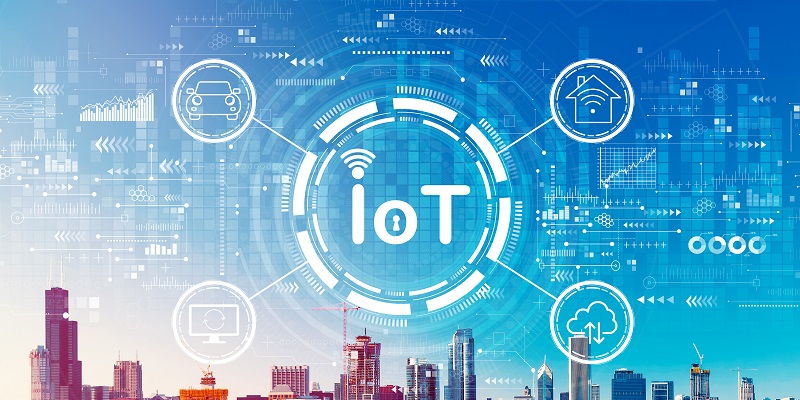The energy industry is undergoing a significant transformation, with the proliferation of Internet of Things (IoT) technology playing a crucial role. As per market projections, the IoT market size in the energy industry is expected to reach a staggering $357.4 billion by 2028. This indicates the growing recognition of IoT’s potential to revolutionize the sector and drive unprecedented efficiency.
Efficiency boost with IoT technology
One of the biggest benefits of IoT technology is its ability to increase efficiency across various aspects of the energy industry. By seamlessly integrating physical devices, software, and data analysis, IoT enables streamlined operations and optimization of resources. This results in reduced energy consumption, faster response times, and enhanced overall performance.
Monitoring and control with smart sensors
IoT technology empowers energy companies to monitor and control their operations with remarkable precision. Smart sensors play a pivotal role in monitoring pipeline flows, ensuring uninterrupted operations. By constantly analyzing data from these sensors, companies can swiftly identify any anomalies, preventing potential disruptions and optimizing efficiency.
Predictive Maintenance for Reduced Downtime
With IoT-enabled predictive maintenance, energy companies can significantly reduce downtime for critical equipment. Remote sensors and machine data constantly monitor equipment health parameters, accurately predicting maintenance requirements. By addressing issues proactively, companies can prevent costly breakdowns, minimize downtime, and ultimately boost operational efficiency.
Enhanced Data Collection with Smart Metering Systems
Traditionally, data collection in the energy industry has been a laborious and error-prone process. However, IoT-powered smart metering systems have revolutionized this aspect. By automating meter readings and collecting other crucial data points, smart meters minimize data collection inefficiencies. This not only ensures accurate billing but also enables energy companies to gain valuable insights into consumption patterns, further enhancing efficiency.
Resilient Infrastructure with IoT-enabled Grids
IoT-enabled grids have the potential to make newly developed energy infrastructure more resilient. With the rapid growth of the sector and increasing environmental goals, it is imperative to have infrastructure that can adapt and respond efficiently. IoT facilitates real-time monitoring, enabling quick identification and mitigation of grid disruptions. This resilience ensures smooth operations, meeting the ever-growing energy demands while reducing environmental impact.
Optimization of Operations through Remote Data
Data gathered remotely through IoT devices goes beyond metering and predicting usage patterns. It also provides a wealth of information for optimizing operations. By analyzing vast amounts of data, energy companies can identify inefficiencies, optimize resource allocation, and enhance overall productivity. This data-driven approach enables companies to stay ahead in a highly competitive industry.
Cultural transformation with IoT adoption
Embracing IoT technology can have a profound impact on a company’s culture. It facilitates the unification of disparate systems and breaks down internal silos, fostering collaboration and innovation. By embracing IoT-driven solutions, energy companies can create a more connected and agile work environment, driving continuous improvement and efficiently achieving business objectives.
Security challenges with expanded IoT usage
While the benefits of IoT in the energy industry are significant, the expanded usage of IoT devices increases the attack surface for malicious actors. Energy companies must prioritize cybersecurity measures to safeguard against potential threats. Implementing robust security protocols, conducting regular audits, and investing in advanced threat detection systems are essential to protect critical infrastructure from cyber threats.
Consumer Benefits with IoT-driven Insights
Consumers also reap the benefits of IoT in the energy industry. By leveraging IoT-supported data-driven insights, consumers gain a deeper understanding of their usage patterns. This enables them to make informed decisions, optimize energy consumption, and reduce costs. Additionally, IoT empowers consumers to actively participate in demand response programs and contribute to a more sustainable energy future.
The energy industry stands at the cusp of a technological revolution, with IoT playing a vital role in maximizing efficiency and transforming operations. From monitoring pipeline flows and enabling predictive maintenance to optimizing data collection and revolutionizing consumer insights, IoT offers unprecedented opportunities for growth and sustainability. However, to fully leverage the potential of IoT, it is crucial for energy companies to invest in robust security measures. With IoT paving the way, the energy industry is poised for a future of increased efficiency, reduced environmental impact, and enhanced consumer satisfaction.

